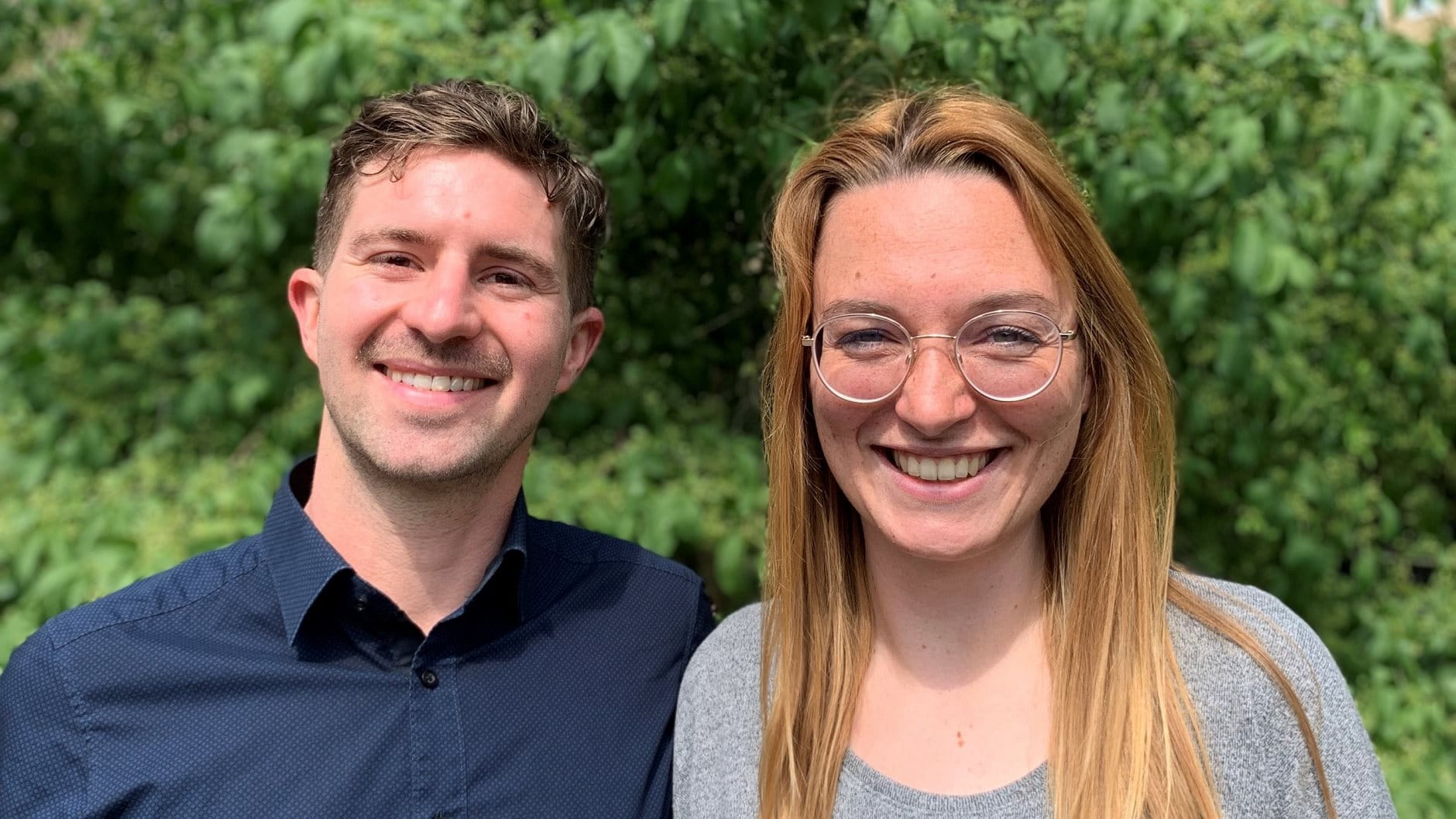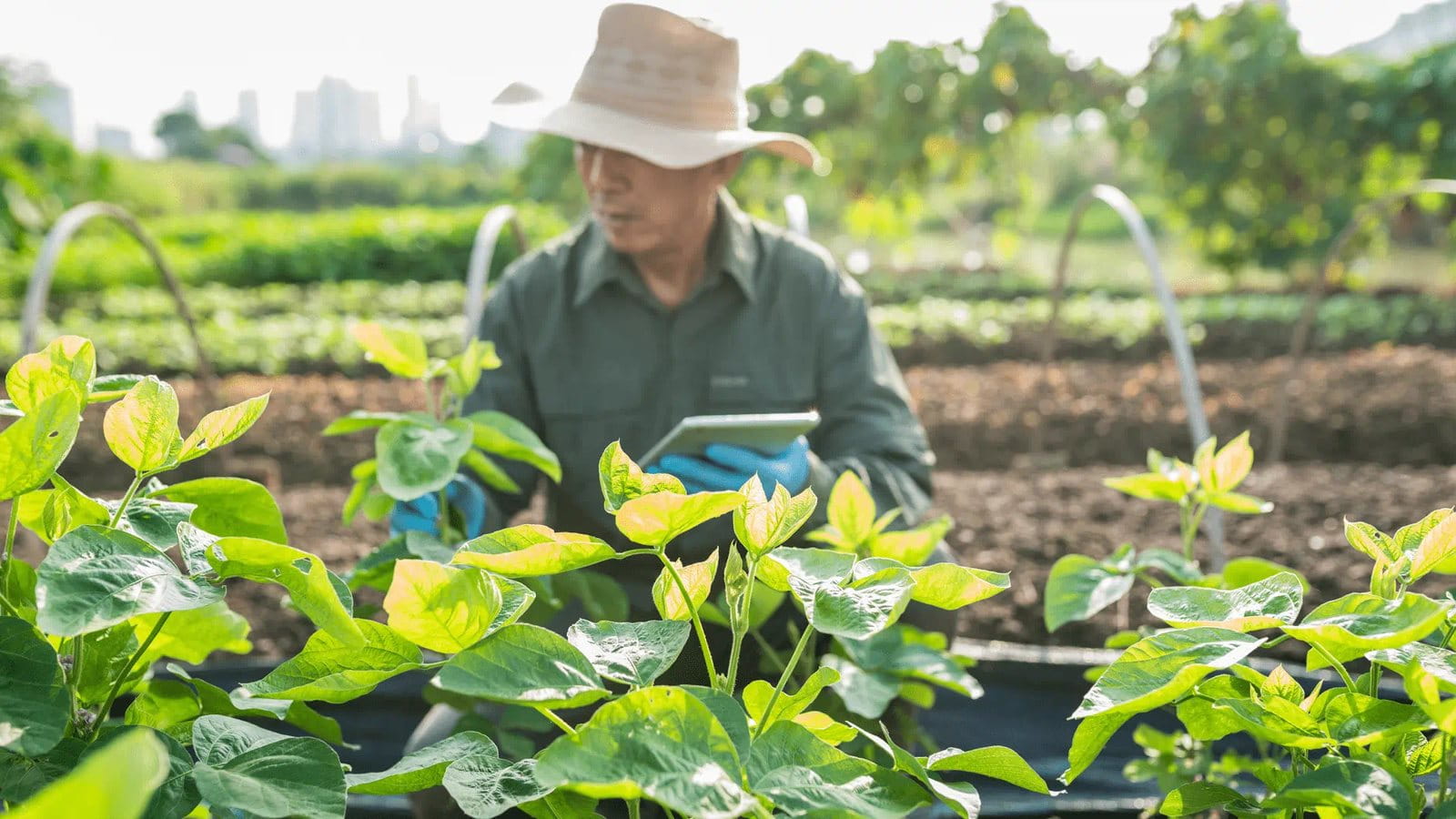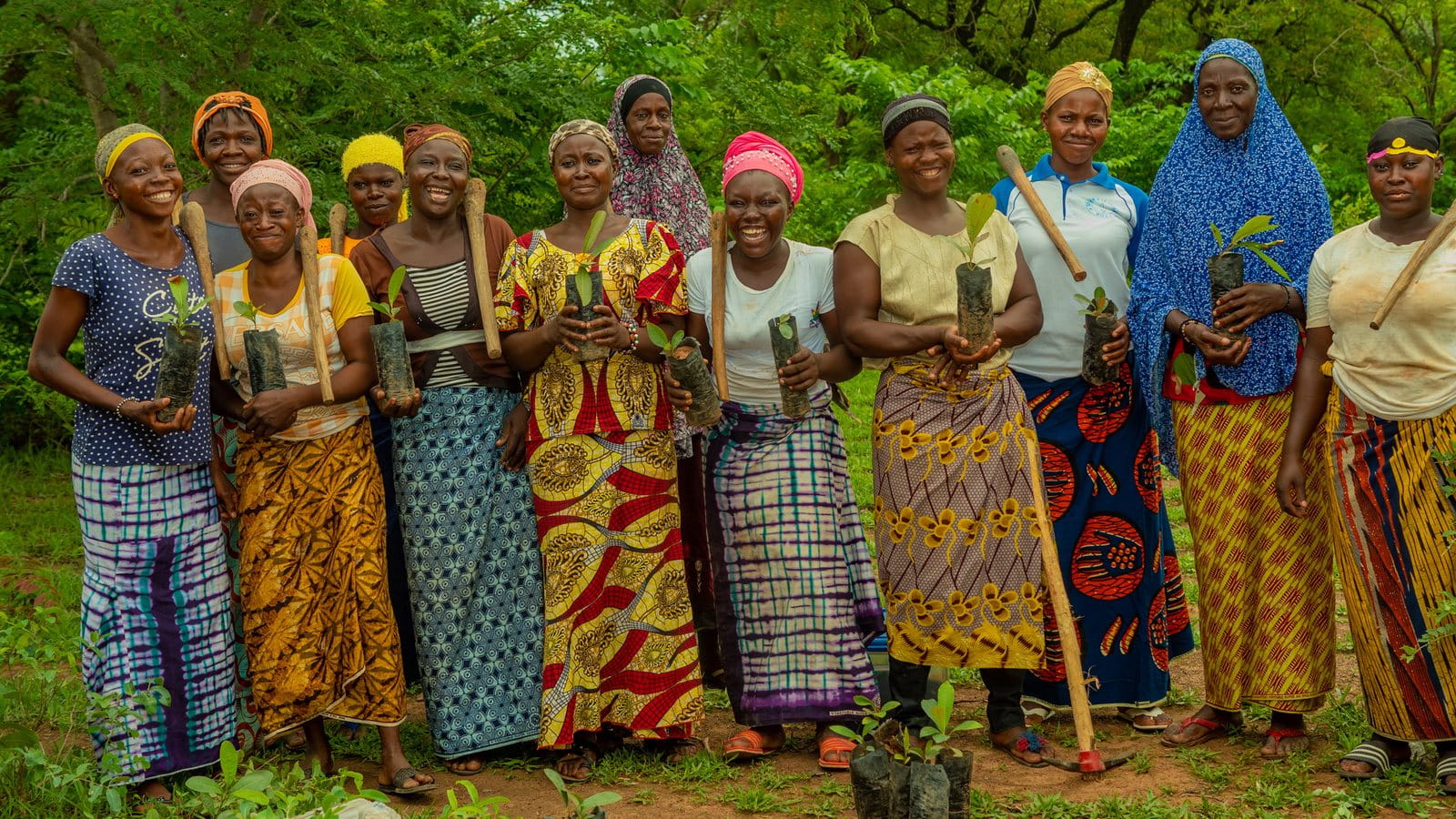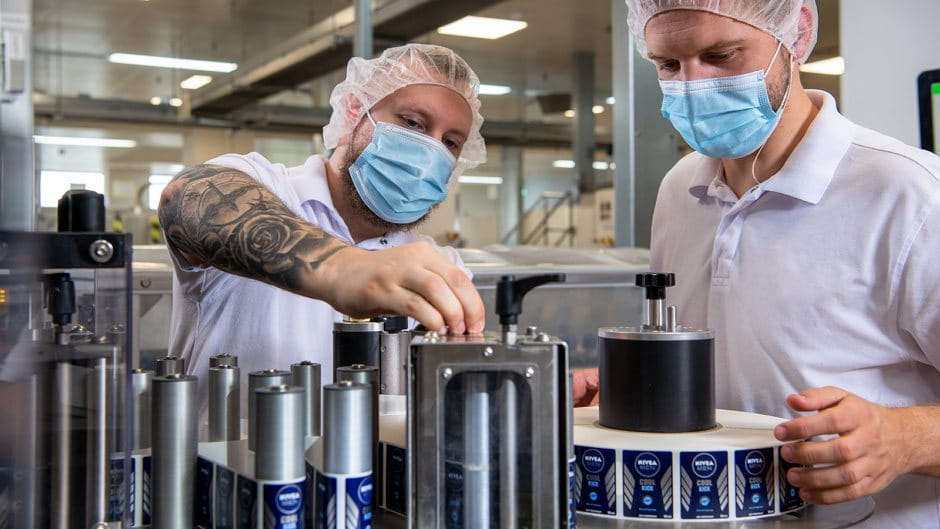Those who do business globally and make profits globally must also bear global responsibility – this sums up the aim of the German Supply Chain Due Diligence Act. It came into force on January 1st, 2023. At Beiersdorf, Marco Egner, Sustainability Manager Responsible Sourcing, and Maren Segelken, Senior Procurement Development Manager Sustainability, are playing a key role in driving its consistent implementation. Both agree: The law is challenging, was long overdue, does some good.
Making globalization better
Supply Chain Due Diligence Act: What went through your minds when you first heard about it?

Maren: That the term is too vague and the core issues of human rights, labor practices and environmental issues don’t become clear. It’s about making the global economy more environmentally and socially fair. So, something very good.
Marco: Apart from the fact that the German word is a 36-letter monster (Lieferkettensorgfaltspflichtengesetz), I was wondering whether we as Beiersdorf need to make any profound changes or adjustments there. We have been actively driving the issue of responsibility along our entire value chain for many years. Not only environmental issues, but also aspects such as human rights, working conditions, living incomes, and safety are very important to us – both for ourselves and for our business partners.
You went deep into the subject: What came out of it?

Marco: Based on an internal pre-study, we organized a cross-functional workshop, which was the initial spark for all further activities. Overall, we were already in a good position, which was also confirmed by an external expert opinion. Nevertheless, there were a few wake-up moments. For example, we realized that responsibilities were not always clearly defined internally and that defined processes were not always implemented consistently. The more intensively we then dealt with the contents of the law, the clearer the challenges became – particularly in terms of transparency and actual influence on suppliers. One example: If local laws allow certain labor conditions, we can’t simply dictate to do it differently. But we can try to exert influence in a spirit of partnership to improve things. And that’s what we do.
Maren: The bureaucracy that the new law brings is also challenging. You must remember that as Beiersdorf we work with several thousand suppliers and partners. It quickly became clear to us that we would need more hands to be able to prove all the details and comply with the documentation requirements. At this point, Beiersdorf is simply a great company. We have not only received the necessary support, but also additional resources.
What does the yesteday-and-today comparison look like in concrete terms?

Maren: Marco said it – we had good approaches to monitoring suppliers even before the new law came into effect. But we didn’t have our own process and hardly any manpower to actively follow things up. External service providers took care of that for us, including assigning a risk status, various online assessment tools and in the form of so-called social audits... We continue to use these services, but at the same time we are taking a stronger lead ourselves. For this we have built up an additional team and hired five new people alone to work on the topic of human rights. This is a valuable support for our Procurement teams, as the colleagues guide them through the procedure and take a lot of work off their shoulders. We would therefore like to take this opportunity to thank everyone who has worked on ramping up the new processes and systems over the past few months.
What does the new supply chain law mean for employees and how do you bring things to life?

Marco: Everyone who works with external business partners has a responsibility. A central element is the so-called Code of Conduct, which defines our social, environmental, and ethical standards and which we revised last year. It meets the latest requirements and forms the basis of our business relationships for all parties. We have communicated a great deal on the new Supply Chain Act and also provided intensive training – with a focus on human rights – for our colleagues, particularly in Procurement. We are currently developing additional mandatory training for employees outside the Procurement function to raise awareness even further throughout the organization.
Maren: By their very nature, our Procurement teams have a high number of touch points with the new law. When we launched our trainings, there was a lot of restraint at first because everyone was aware of the bureaucracy behind it. At the same time, when it comes to issues like the environment, human rights and working practices, there is a lot of intrinsic motivation. None of us wants to work with partners who act contrary to our values. In the end, the colleagues appreciate that we have put things in order and that a lot of work is taken off their shoulders.
The EU is also planning a Supply Chain Due Diligence directive to ensure international human rights and environmental standards: What is this all about?

Marco: The European regulation is intended to go much further than the German Supply Chain Due Diligence Act. While the German version focuses mainly on direct business partners, the requirements and due diligence obligations of the European draft directive extend across the entire value chain and include not only suppliers of suppliers but also downstream business partners (such as transport, storage, or disposal). Here, too, we face major challenges – but the preparation for the German Supply Chain Due Diligence Act helps us enormously in this regard.
What is important to you personally and how do you take responsibility as private individuals?
Marco: For example, I’ve given up my car and use public transport, I don’t eat meat anymore, I buy organic food and products from brands that make their supply chains transparent. But let’s be honest – I live in a well-connected city center and have many choices in my consumption decisions. A foundation that allows me to make a contribution on a small scale. At Beiersdorf, however, we have much, much greater leverage. That gives my job meaning and pushes me – and from an overall economic perspective, I think the new law is overdue.
Maren: I agree. When I have a choice, I always go for the product that is more sustainable. As consumers, we can influence companies. The higher the demand for responsibly produced products, the more motivated manufacturers are to improve things. We see that this works in Europe and many other countries. I’m reassured by the thought that we ourselves make the difference and have an influence on the environment and people’s working and living conditions with our purchasing decisions.
Related Links
About the editor: Ines Kandel

Ines is responsible for the communication all along our Supply Chain and related topics such as Procurement, Digitalization, Logistics, Quality or our Beiersdorf Production Centers worldwide, Ines is the expert for communicating these. Before that she worked on various communication topics for Beiersdorf – including HR, Strategy, R&D, Finance and Crisis Communication.
